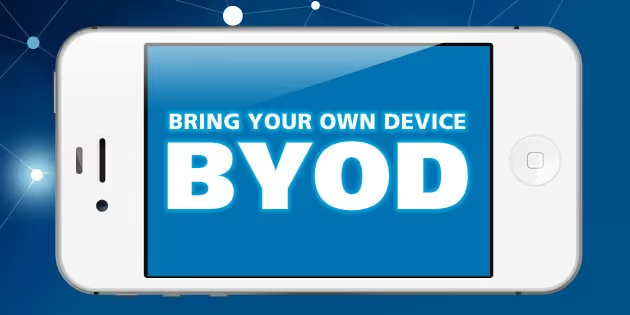
“My friend’s company lets her use her phone at work,” a resident tells you. “Find a way to make it work,” mutters your facility administrator while keeping his eyes glued to his iPhone. Whether they like it or not, healthcare compliance officers and CIOs are facing a growing dilemma. Seemingly everyone in their organization wants to adopt a bring your device (BYOD) mobile policy. However, the benefits of empowering employees with greater access to data typically drown out the lingering data control concerns.If you find yourself considering a BYOD policy, first think about your risks. As any OCR/HHS or hospital CIO, who has suffered through a data breach, will tell you, security risk assessments are vital to a HIPAA compliance plan. So what are the unique risks of adopting a BYOD policy in the healthcare world?
A primary concern a CIO or CCO should consider is the transmission of PHI between providers via text message. Even if the purpose behind the communication is treatment related, the HIPAA Security Rule prohibits sending PHI through an unsecured channel, which is almost always the case with texting. With intermingled work and personal contact lists, the inadvertent sending of PHI to an individual outside of the organization is ever present.
Another risk to consider is the storage of PHI in a mobile device’s native texting application. Coordinating patient care across a team through a series of text messages can yield great benefits. The transcript each user creates via a text dialogue presents enormous risks if not locally encrypted. A workforce member who loses his or her phone with unsecured data saved locally just caused his HIPAA Privacy Officer to disclose a breach to OCR.
A third important risk to consider when rolling out a BYOD policy is to assess the third parties. THis includes any vendor associated with the phone applications with access to PHI. As the recent HIPAA Omnibus regulations made clear, cloud-based vendors that store PHI are considered business associates under the law. If a facility neglects to enter into business associate agreements with these data-storing providers, they'll face sanctions when a reportable security incident or HIPAA audit.
CIOs and CCOs need to carefully consider their risks before rolling out a full BYOD policy. Practically speaking, mobile device communication is probably already going on at your facility – BYOD policy or not. Identifying and mitigating risks associated with smartphones will save hospital administrators major headaches should OCR comes knocking on the door.
